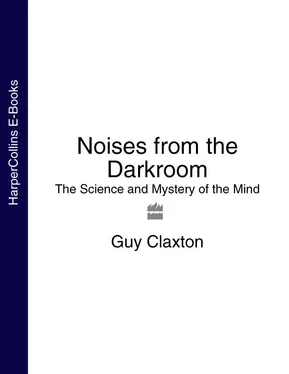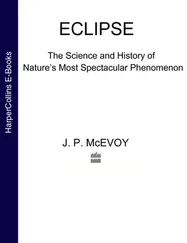Science is much revered, and equally maligned, at the present time, being seen as both villain of the ecological piece, and the only possible contender for the role of Saviour. Neither of these extreme reactions is justified, though each is true in part. It is true that the scientific world-view, by installing itself in our culture as the Only (Worthwhile) Epistemological Game in Town, has squeezed out of our minds other less explicit or articulate ways of knowing that are actually vital (as I shall argue in a moment) if we are to recover our ‘basic sanity’. And it is true that science has fathered the most unspeakable inventions of all time. But it is also true that science has provided us with a most powerful and elegant set of ways of thinking about the physical and biological worlds, and that this framework has made possible the development of technologies (of housing, transportation, medicine, communication…you name it) that have genuinely improved the quality of life for millions of people.
And science, however prone to witting or unwitting abuse, offers a powerful method for ‘sailing straight’; for getting our theories and assumptions to reveal their logical and practical conclusions, whether they suit us, whether we like them, or not. Common sense can happily and unwittingly sail round and round in circles, while convincing itself it is on a voyage of discovery. Rational thought by itself (contrary to its own Public Relations literature) is bound to follow the tracks laid down by our unconscious presuppositions, and being the servant of hidden dictates, its claims to objectivity are disingenuous. Science, for all its faults, though it zig-zags and falters, has the potential to help us to escape from the self-serving mental world of ‘common sense’. The inexorable power of its method can force us to think what had previously been unthinkable: what we had been prevented from even considering by the unconscious habits of thought on which we had been relying.
One of the contemporary misunderstandings of science is that it will relentlessly sweep away religion, spirituality and mysticism, like a bulldozer in a rain-forest, leaving only the flat and open land of Pure Reason. Nothing could be further from the truth. The value of science is in its ability to expose the shortcomings of ‘common sense’, and thereby to enable cultures to see, and to improve, their own myths. (Philosophers, shamans, poets and mystics are the traditional ‘scientists of the mind’ in this sense.) And having drawn attention to a limiting assumption, science can offer in its place not the ‘truth’ (for science can only ever deliver theories) but a more workable myth: a better model of some aspect of life. A scientist may be led by her theories to ask a question that ‘common sense’ would never have thought of, and if it had, would have written off as ridiculous. And every so often, the reply to such a question will challenge received wisdom, and make us think.
For example, take the simple word ‘see’. What could be more straightforward than the process of noticing what there is around, and acting in a way that takes account of what has been seen? Our common sense does not make a distinction between the conscious experience of seeing, and the more functional idea of ‘registering’ what is there, and incorporating that knowledge into our plans. It hardly makes sense to suppose that we could register anything if we could not ‘see’ it. Yet that is exactly what has been shown, by careful tests, to happen to patients who have suffered a certain kind of brain damage. They cannot ‘see’ anything in one part of their visual field, yet they can respond to questions in a way that they only could if they ‘knew’ what was there. They must be able to ‘see’, because they can act appropriately; yet they have absolutely no visual experience, and strongly deny that they ‘saw’.
We can either mutter ‘weird’, and write this phenomenon off as another piece of psychological trivia; or we can ask what this does to our common sense, to our ‘obvious’ relationship to our own consciousness. Just how much interpreting and decision-making actually goes on without the intervention, or even the knowledge, of the Chief Executive? Is where ‘I’ am sitting really the seat of power, or am I just a puppet, fed not with high-grade intelligence but with a thoroughly expurgated version of events, and handing down edicts to which the unconscious company turns a collectively deaf ear?
The Miracle of Mindfulness
Scientific knowledge will not of itself correct the underlying faults in our inner-vision, any more than reading a textbook on optics will improve your eyesight. But it may well help us to understand and accept the diagnosis, and increase our willingness to seek a more powerful cure. For this we need more than rational understanding of the problem. We need methods for cleansing the ‘doors of perception’, and for these we shall have to turn back to the advice of the mystics again. They offer a bewildering variety of practices, but all share the view that wisdom arises not from more and more understanding, only through a personal programme of ‘perceptual re-education’. Scientific demonstrations, and reasonable argument, may take us to the brink of this process, but it cannot take us any further.
All these varied ‘technologies of transformation’, if they are to have a lasting effect, rely on a single potentiality: mindfulness. 2It is fortunate indeed that evolution has equipped us with a tool to effect this perceptual cleansing, for it would have been quite possible for humankind to have painted itself into a psychological corner from which there was no escape. At the end of every episode Batman used to appear to have got himself into a hopeless position…only for some trick or gadget to save him at the start of the next programme. Luckily we have up our sleeves a particular reflexive use of consciousness that can help us too to escape. In our case the traps are of our own devising, and consist of assumptions and beliefs, dissolved in the very way we see the world, which create apparent problems, and prevent us both from solving them, and from seeing that they are of our own making. Mindfulness involves cultivating the knack of making them visible, and of freeing ourselves from the power they exert to make us ‘shrink to fit’.
In this ‘cleansing of the doors of perception’, as William Blake called it, the presence and the power of the unconscious is revealed. We cease being so eccentric , so displaced from our natural centre of gravity, and can relax into the unknowable heart. This, finally, is the revelation of divine truth: not a glimpse of any conceivable God, but a close encounter of an essentially mysterious kind. So spirituality, it turns out, resides in a simple correction of the brain – or perhaps we should say the ‘world-body-brain-mind’, as it becomes increasingly clear, as the story unfolds, that we cannot legitimately separate them from each other. Neuroscience, the scientific study of the brain and the nervous system, is now able to give us a working picture of the brain that can explain how mystical experience occurs, and why it takes the forms it does.
The mystics have talked of peacefulness and belonging, of wisdom and clarity, of an indiscriminate, impersonal love, of naturalness and simplicity, of knowing , without knowing what it is one knows, of a vivid and fiery quality to perception. Yet why just these qualities should appear together has itself been a mystery. Why should the body course with energy, and vision become luminous and penetrating, at the same time as one is suffused with tranquillity, understanding and compassion? The answer is to be found in the way the brain is built to work, and in the way its processes are corrupted by a small coterie of unrecognized beliefs (principally about the mind itself). When the ‘Self System’ is sidelined or shortcircuited, the brain instantaneously reverts to a more basic modus operandi , of which what we call ‘Buddha mind’, or ‘the grace of God’, is the natural efflorescence.
Читать дальше












